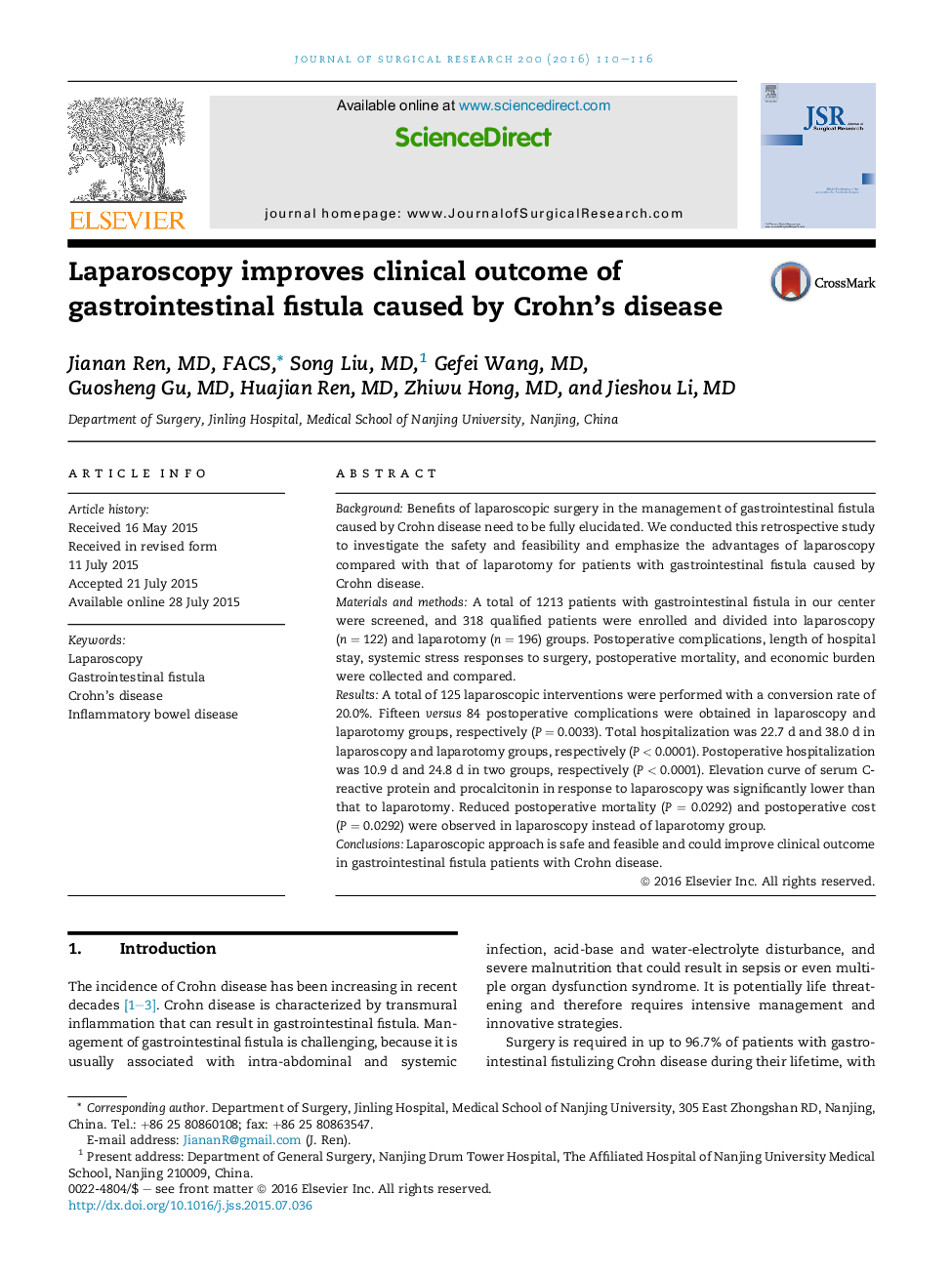| Article ID | Journal | Published Year | Pages | File Type |
|---|---|---|---|---|
| 4299499 | Journal of Surgical Research | 2016 | 7 Pages |
BackgroundBenefits of laparoscopic surgery in the management of gastrointestinal fistula caused by Crohn disease need to be fully elucidated. We conducted this retrospective study to investigate the safety and feasibility and emphasize the advantages of laparoscopy compared with that of laparotomy for patients with gastrointestinal fistula caused by Crohn disease.Materials and methodsA total of 1213 patients with gastrointestinal fistula in our center were screened, and 318 qualified patients were enrolled and divided into laparoscopy (n = 122) and laparotomy (n = 196) groups. Postoperative complications, length of hospital stay, systemic stress responses to surgery, postoperative mortality, and economic burden were collected and compared.ResultsA total of 125 laparoscopic interventions were performed with a conversion rate of 20.0%. Fifteen versus 84 postoperative complications were obtained in laparoscopy and laparotomy groups, respectively (P = 0.0033). Total hospitalization was 22.7 d and 38.0 d in laparoscopy and laparotomy groups, respectively (P < 0.0001). Postoperative hospitalization was 10.9 d and 24.8 d in two groups, respectively (P < 0.0001). Elevation curve of serum C-reactive protein and procalcitonin in response to laparoscopy was significantly lower than that to laparotomy. Reduced postoperative mortality (P = 0.0292) and postoperative cost (P = 0.0292) were observed in laparoscopy instead of laparotomy group.ConclusionsLaparoscopic approach is safe and feasible and could improve clinical outcome in gastrointestinal fistula patients with Crohn disease.
